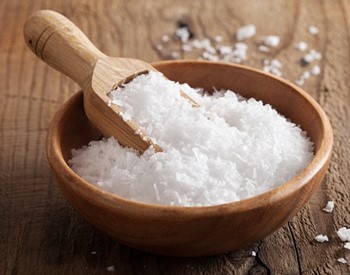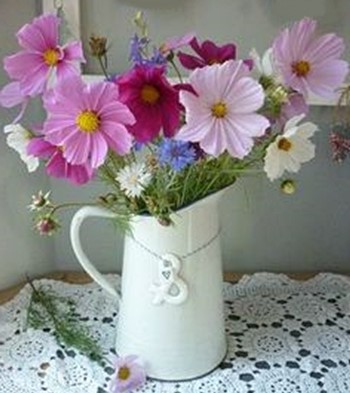 Every household has salt.
Every household has salt.
But did you know that you can use salt for more than adding flavour to your food?
Here are my 12 favourite uses for salt in the home and in the garden.
Freshen up your hands. After handling fish, onions and similar not-so-fragrant substances, dip a lemon wedge into salt, rub your hands with it and rinse with water. The unpleasant smells will be washed away!
Clean the cups. To remove tea and coffee stains, sprinkle your kitchen sponge with a dash of salt and scrub. If the stains are extra stubborn, add some white vinegar.
Clean greasy pans. Let the pan cool, then sprinkle salt onto it and wipe with a paper towel. The grease will be removed and the pan will be easy to wash the usual way.
Clean the iron. When you notice that the underside of your iron is sticky with accumulated residue, sprinkle salt on a piece of paper and run the hot iron over it a few times.
Unclog drains. Mix one cup of salt, one cup of baking soda and half a cup of white vinegar and pour the mixture down the drain. Let it sit for about 10 minutes, then chase it with about two litres of boiling water and run the hot-water tap until the previously hair-clogged drain flows freely.
 Add it to cut flowers. A tablespoon of salt added to the water in a flower vase will keep cut flowers fresh for longer.
Add it to cut flowers. A tablespoon of salt added to the water in a flower vase will keep cut flowers fresh for longer.
Apply to wicker furniture. To avoid yellowing with age and exposure to the sun and elements, scrub your wicker furniture with a stiff brush dipped in warm salt water. Let the piece dry in the sun. Repeat the process every one or two years to keep your wicker looking fresh and new.
Stop the ant march. When you notice that ants are set on invading your home, sprinkle some salt across their path. The ants will not want to cross this barrier.
Stop the candle drip. Soak new candles in a strong salt solution (about 100 grams of salt dissolved in one litre of water) for a few hours and dry them. When lit, the “salted” candles will be less prone to dripping. Now you can enjoy your romantic dinner that much more.
Sanitise kitchen sponge. After drip-proofing your candles (see entry above), use the same solution to sanitise your kitchen sponge. Leave the sponge soaked in the salted water for several hours or overnight.
Neutralise wine stains. If you ever spill red wine on your light-coloured pants (or your in-laws’ white linen tablecloth), blot up as much of the spill as you can with a paper napkin and immediately cover the stain with lots of salt. Wash the stained fabric as soon as possible. This method works on other types of stains too, for example fruit juice or grease stains.
Repair walls. Mix two tablespoons of salt and two tablespoons of cornstarch with just enough water to make a thick paste. Use the paste to fill nail holes and to fix small chips on plaster walls.
There are many, many more ways we use salt, in the house as well as in industry. Those in the know say that only 6% of all salt manufactured goes into food. The ancient Romans were already aware of the many uses for salt. In fact, salt was so valuable that soldiers were literally paid in salt. The term salary comes from Latin sal, meaning salt.










